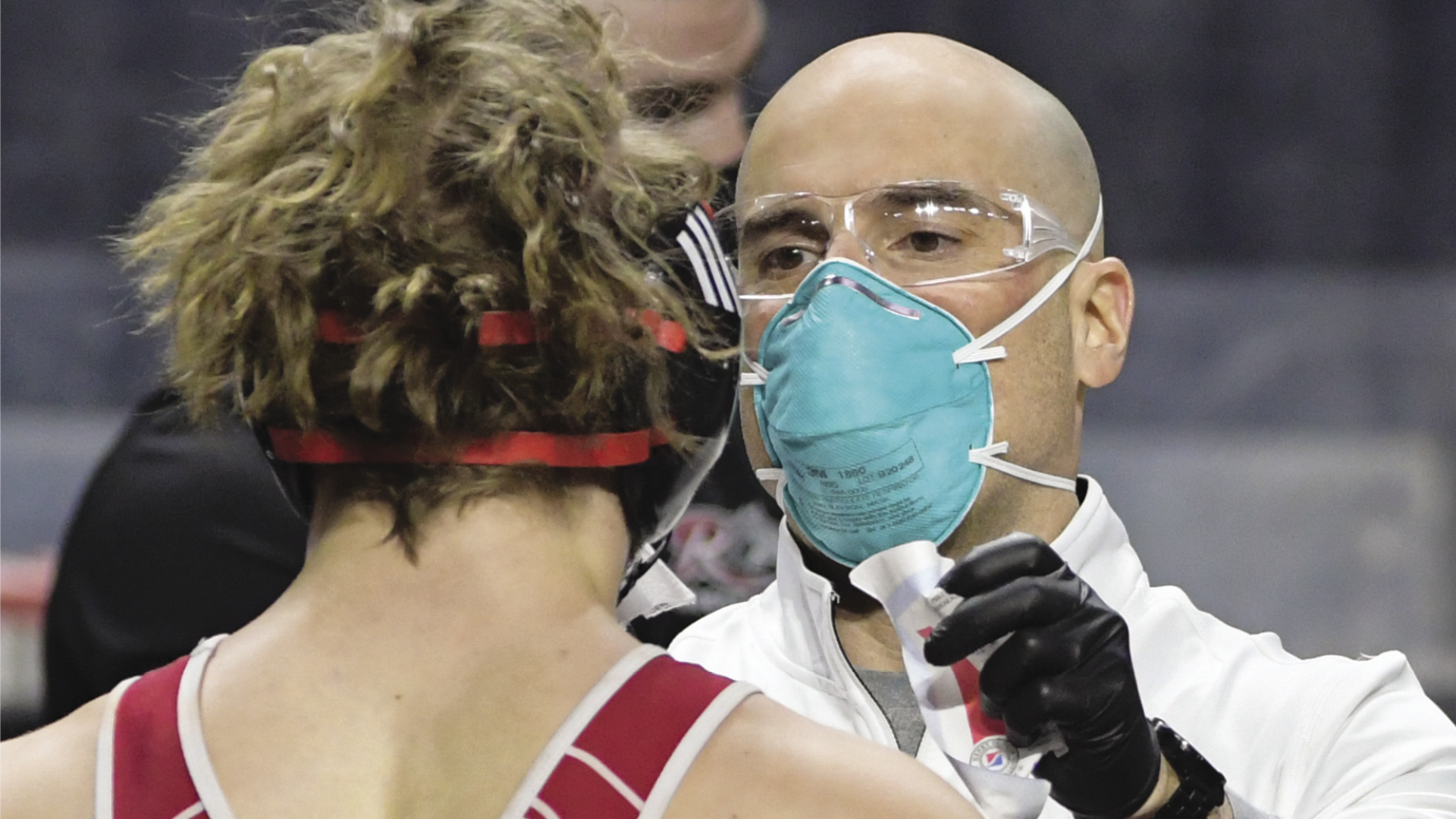by Adam Grybowski
In his role as head athletic trainer for Rider Athletics, Tim Lengle is accustomed to treating the common injuries athletes routinely face. Still, “there’s a surprise every day,” he says. “You never know what you’re going to be dealing with.”
Last March, the biggest surprise of Lengle’s career arrived: the coronavirus pandemic.
The Metro Atlantic Athletic Conference (MAAC) responded by pulling the plug on athletic competition, first in the spring and then again in the fall. Last November, the MAAC announced that competition would finally resume.
Lengle wanted nothing more than for the return to succeed, but he harbored doubts about how it could be accomplished. “In my gut, I didn’t see how we would get through it,” he says. “We made a lot of changes and intelligent decisions that certainly lowered the risk. But still, when you have 20 or 30 athletes in a room, if anyone of them has COVID, there’s a chance everyone is going to soon have it.”
To prepare for the challenge, Lengle and his team dove deep into several unfamiliar areas. Recalling those subjects, he sounds like an ambitious undergraduate ticking off his course roster: infectious disease, supply chain economics, epidemiology. Over the summer the entire sports medicine staff became certified contact tracers. “All of these things you never thought would be your job became necessary,” he says.
The stakes were high. The onus was on Rider to keep people safe and healthy. Testing and contact tracing imposed a significant financial and workload burden. Failure could mean not only the end of competition but, even more troubling, the beginning of a breakout on campus. All the while, standards and guidelines were evolving, sometimes with barely a moment’s notice.
The coronavirus was also exacerbating conditions that affected mental health, a growing area of importance for Lengle’s staff. Over time, he says he has seen “more and more” student-athletes struggling with mental health, a trend that mirrors student populations across the U.S. As the pandemic upset livelihoods and curbed social interaction, researchers noted increased rates of anxiety and depression at large. The situation could be particularly hard for student-athletes.
“Some of these athletes had their seasons yanked out from underneath them,” Lengle says, “and the concepts of quarantine and isolation aren’t ones anyone likes.”
To provide an effective response, the sports medicine staff leaned into their formal training — last year, they became one of the only athletics departments in the nation to become certified in mental health first aid — and drew upon their close relationship with Rider’s Counseling Services for additional support.
Despite these challenges and others, Lengle describes the winter season as a success. While quarantines were at times necessary, each of those occurrences ultimately involved a limited number of cases. Jesse Dellavecchia ’20 became Rider’s first-ever wrestler to advance to the national championship bout. Both the men’s and women’s basketball teams exceeded expectations in the MAAC tournament.
Lengle credits the way student-athletes responded to this season’s stressful conditions. “They embraced the fact that if they wanted to have a season and compete, then this is the reality,” he says. “I chalk that up to our student-athletes buying into COVID prevention strategies and doing their best not to go out and be social like normal college students.”
Over his 20 years as an athletic trainer at Rider, Lengle says this year has been the most difficult. And while he’s proud of what his staff has accomplished, he can’t wait for the post-pandemic future. “In the athletic training room, the joy is in treating student athletes and helping them get better through hands-on work,” he says. “We’re fortunate at Rider to have a fantastic staff. We’d be struggling otherwise.”

